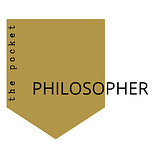Thought
The development of language is part of the development of the personality, for words are the natural means of expressing thoughts and establishing understanding between people.
—Maria Montessori
Application
While Wittgenstein was primarily focused on meaning and use within language, Montessori was primarily concerned with the mechanics of development and social function. She was fascinated with children, and spent countless hours observing them and testing hypotheses of their development.
The greatest observation she left for us was the way in which children began absorbing language as early as 3 months old. She noted a “special window” of sorts in which a child is hyper-absorbent between birth and 3 years old. In this stage our brains are physically primed to take on their first language.
She concluded that we do not learn how to speak, as much as our brains are primed to receive a language. In many respects, we are born with the capacity for language, and we just need to learn the “game.” Ironically, this is exactly how Wittgenstein often referred to language, he called speech a pattern of language games.
Montessori believed that children simply absorbed the language game that they were the most exposed to. All subsequent languages would have to be learned through practice and memorization, a more difficult compare and contrast function in the mind until the language becomes second nature.
However, if you can expose a child early enough to multiple languages they are capable to absorbing multiple games at once.
This hypothesis and empirical observation was explosive, because it proved that we as a species evolved with a capacity for language, rather than language being a separate intellectual concept we imposed or discovered.
Language is innate.
And this leads to the final point: Montessori noted how communication was a separate function and required more sophisticated skills. Like Wittgenstein, she concluded that even though one might have the capacity for absorption, the work to clarify one’s speech to match the intended meaning by honing the craft of a native tongue, is the work of personal reflection and general education. And this system of education would become her greatest gift to humankind.
If this section is all you have time for this morning this has been a great introduction to Montessori, but her personal life’s journey is as fascinating as Wittgenstein if not more. If you can, you’ll definitely want to check out the backstory below.
Backstory
Maria was born in Italy in the late 1800s to a well-educated middle class family. She would come of age in a time of social reforms, conversations around gender equality, and scientific exploration.
As she progressed through school, she found herself excelling often beyond her peers. She was determined to become a doctor, an occupation traditionally off-limits to women.
After her initial interview for medical school was denied based solely off her gender, she concluded the failed meeting by calmly stating that she would in fact become a doctor. She chose to study physics, mathematics, and natural sciences allowing her to earn her doctorate, which she then used a leverage to gain admittance to medical school where she became one of the first female doctors in Italy.
Without meaning to, this path also led her straight into the limelight as a public figure for gender equality. Montessori’s intellectual capacity as a polymath, and her ability to articulate on a variety of subjects in the public space made her an enigmatic figure still influencing the way we conduct everything of the study of language to education to activism.
She gravitated toward psychology, and upon earning her medical doctorate chose to work primarily with Italy’s urban poor and children.
Her scientific mind immediately began observing, hypothesizing, and testing various forms of treatment for her supposed “psychotic” patients—children who were thought to have something wrong with them.
Primarily, she concluded that most children in Italy at the time (firmly in the midst of urban sprawl and the industrial revolution) had no one to cultivate an environment conducive to their absorbant minds.
She was often brought children as patients who simply needed an environment that fostered their natural cognitive development.
Years of work with these children would lead to the Montessori method, a non-instructive child lead education process that focused on creating conducive environments in which the child discovers knowledge as they are ready to learn independently.
In the modern world, this education system has produced some of the most prolific thinkers from the founders of Google to Bill Gates.
What is most interesting in my opinion, is how in her work she experienced an impact in tangential areas like social reform and peace activism. She developed a pedagogy that insisted children be given a hygienic, intentional space to develop independently, and they would become adults who might be centered and healthy enough not to need reform in the first place!
She said,
Establishing lasting peace is the work of education; all politics can do is keep us out of war.
As an activist she was convinced that the structure of contrived political power kept women disenfranchised noting to reporter who asked how her patients perceived being treated by a woman doctor that,
they know intuitively when someone really cares about them.… It is only the upper classes that have a prejudice against women leading a useful existence.
She firmly believed that the ills of modern society began with children repressed and ignored. This fascinating pedagogy goes well beyond the confines of the classroom, and paints a whole new vision of the world.
I’ve long been fascinated by this incredible woman and her vision of the world, and I hope it likewise resonated with you!
Until tomorrow,
-TPP
References:
https://www.kinderhousemontessori.com/language-in-the-montessori-classroom/#:~:text=Maria%20Montessori%20observed%20that%20the,94).
https://www.montessoriradmoor.org/administrator-blog-page/march-montessori-minute-language/
https://www.brainyquote.com/quotes/maria_montessori_752856#:~:text=Maria%20Montessori%20Quotes&text=The%20development%20of%20language%20is%20part%20of%20the%20development%20of,and%20establishing%20understanding%20between%20people.
https://www.brainyquote.com/authors/maria-montessori-quotes
https://montessori-ami.org/resource-library/facts/biography-maria-montessori
https://themontessorifamily.com/the-most-famous-montessori-alumni/
Image:
https://en.wikipedia.org/wiki/Maria_Montessori#/media/File:Maria_Montessori_(portrait).jpg












